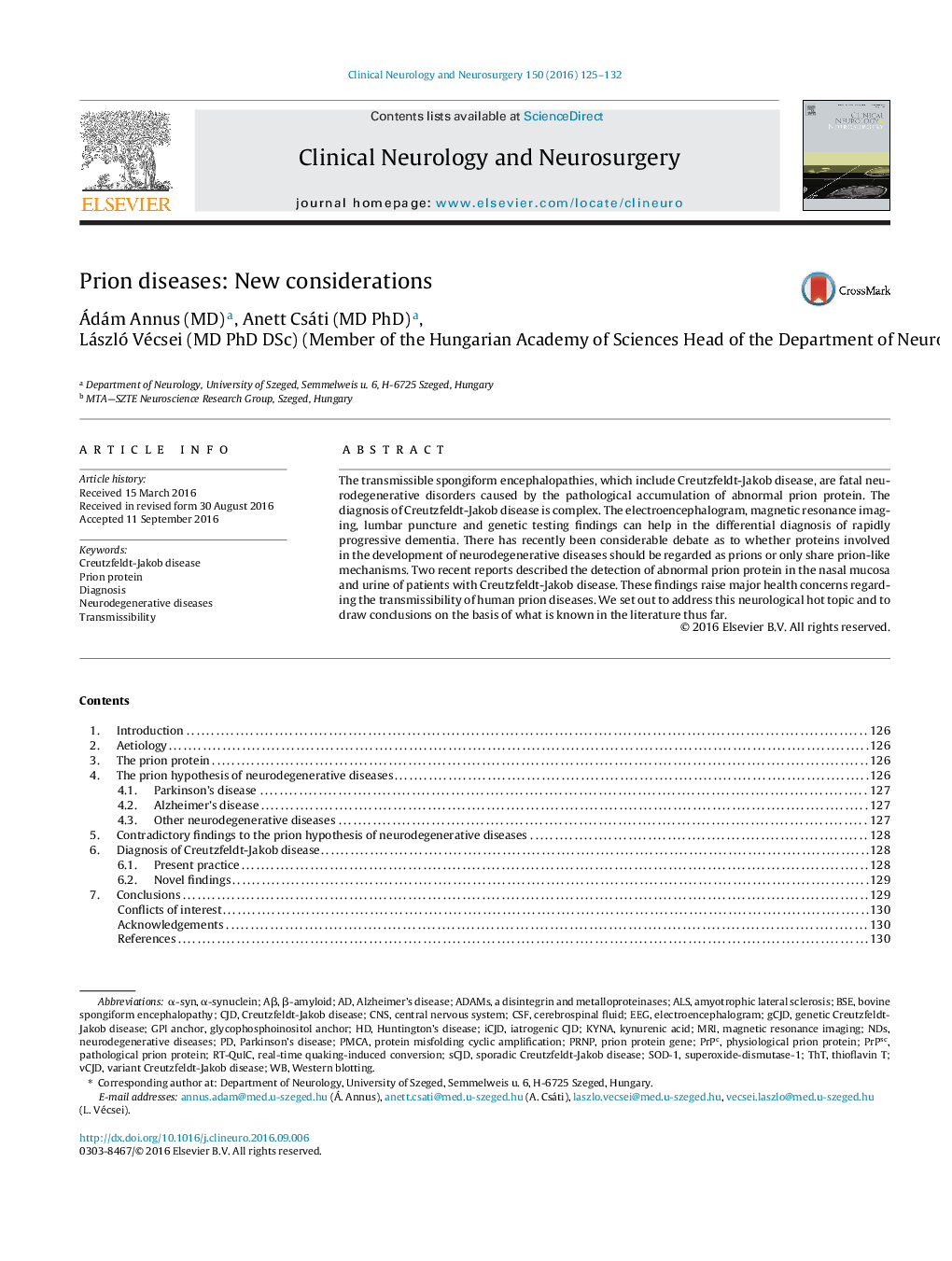| Article ID | Journal | Published Year | Pages | File Type |
|---|---|---|---|---|
| 8682077 | Clinical Neurology and Neurosurgery | 2016 | 8 Pages |
Abstract
The transmissible spongiform encephalopathies, which include Creutzfeldt-Jakob disease, are fatal neurodegenerative disorders caused by the pathological accumulation of abnormal prion protein. The diagnosis of Creutzfeldt-Jakob disease is complex. The electroencephalogram, magnetic resonance imaging, lumbar puncture and genetic testing findings can help in the differential diagnosis of rapidly progressive dementia. There has recently been considerable debate as to whether proteins involved in the development of neurodegenerative diseases should be regarded as prions or only share prion-like mechanisms. Two recent reports described the detection of abnormal prion protein in the nasal mucosa and urine of patients with Creutzfeldt-Jakob disease. These findings raise major health concerns regarding the transmissibility of human prion diseases. We set out to address this neurological hot topic and to draw conclusions on the basis of what is known in the literature thus far.
Keywords
PrPscCJDPrPcNDSsCJDPMCAPRNPα-SynSporadic Creutzfeldt-Jakob diseaseSOD-1AβvCJDVariant Creutzfeldt-Jakob diseaseBSEADAMsα-synucleinβ-Amyloidamyotrophic lateral sclerosiskynurenic acidElectroencephalogramMRIThTCreutzfeldt-Jakob diseaseAlzheimer’s diseaseALSHuntington’s diseaseNeurodegenerative diseasesParkinson’s diseasea disintegrin and metalloproteinasesDiagnosisMagnetic resonance imagingProtein misfolding cyclic amplificationThioflavin TBovine spongiform encephalopathyCNScentral nervous systemTransmissibilityGPI anchorCSFCerebrospinal fluidEEGWestern blottingPrion proteinPrion protein geneKYNA
Related Topics
Life Sciences
Neuroscience
Neurology
Authors
Ádám MD, Anett MD PhD, László (Member of the Hungarian Academy of Sciences Head of the Department of Neurology),
